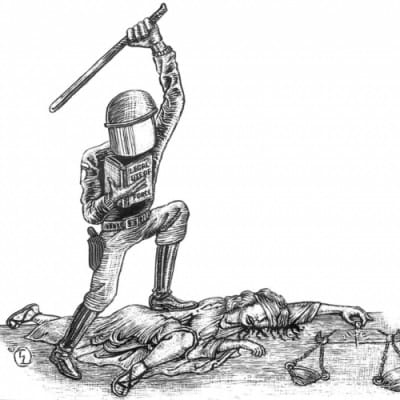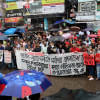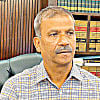Homeopath's guide to police brutality in Bangladesh

From the look of things, it appears that the policemen in Bangladesh are drawing inspiration from the homeopath's guide to potency and dosage. As a general rule, chronic illness that a patient has for a long time should be treated with low potencies, and acute conditions that are relatively new should be treated with high potencies. That explains why two men with no criminal records have been brutally roughed up in the capital where hardened criminals roam free.
We can safely assume that these two victims of police brutality aren't criminals because they haven't been charged with anything. One of them is a central bank official and another is a city corporation supervisor, not exactly drifters who should be suspects in a paranoid city. But the policemen saw something that made them itchy. Like astute homeopaths, they readily assessed administering the correct dosage to those men was important.
And that correct dosage started with a few blows in two separate incidents. It didn't matter what those men must have begged to say in their defense. It didn't matter that they must have repeatedly pleaded that they too worked for the government. The policemen knew that criminals like patients live in a state of denial. They knew a good thrashing could open mouths like laxative cleanses bowels.
Now we know both incidents were unfortunate. And that realisation has also hit home with the police authorities, who promptly suspended the guilty officers. Even the High Court has observed that the sub-inspector, who detained and tortured the bank official, committed a criminal offence.
What will happen next is a never ending story. We are going to forget it soon. The police officers might get sacked or reinstated. The victims, however, will wake up terrified from disturbing nightmares, as the pain will hurt them long after the wounds are healed.
But is it going to change anything? Newspapers and TV channels bring us spine-chilling stories of how misguided policemen are carrying out kidnapping, extortion and contract killing. But what we read, hear and see don't add up to all the police excesses taking place across this country. The vendors, hawkers, truckers, bus drivers, commuters, pedestrians, landowners, homeowners, beggars, the guilty and the innocent alike anywhere and everywhere in this land have tales to tell. They can vouch how conniving cops are forever squeezing them for money.
As it is, police brutality isn't just a problem in this country. It's a global problem when law enforcers behave like outlaws. Numerous incidents happen in the United States every year, when white policemen target suspects not for the nature of their crimes but the colour of their skins. The cops of Rio de Janeiro in Brazil notoriously shoot homeless children for target practice.
In 2013, the Indian Supreme Court took suo motu cognizance after a senior police officer in Delhi slapped a young woman so hard that she bled from the ear. In another incident in Aligarh, an officer had brutally pushed an unarmed 65-year-old woman. The courts in both cases observed that unless a surgery from top to bottom was done, nothing was going to change. They were critical of the excessive force used by police and disrespect they showed to citizens, particularly women.
The same concerns also rang out in this country when people read the news and saw the anguished images of the two wronged victims. Everybody understands that law-enforcement isn't exactly a walk in the park. There are tense moments when it's only human to flip under stress. Verbal abuse or use of inordinate force or error in judgment can happen when those patrolling our streets are overly stretched.
Sigmund Freud believes that everyone has the desire to cause pain to another human being, but some of us have it under better control than others. Heinz Kohut was a Freudian psychoanalyst who argues that rage or hatred directed at another person can be a way of holding ourselves together. Psychoanalyst and author Christopher Bollas says that a profound emptiness always lies under hatred and hateful behaviour.
All of these three theories are plausible reasons for police brutality, because deep down inside policemen are human beings. When they go home and take off their uniforms, they sit face to face with the miserable monster howling between lust for money and blast of political pressure. Our policemen live in anxiety because they can't even protect themselves.
The victims of police brutality make it obvious. Their screams are nothing but the cry of their tormented tormentors. Scientists found that high doses of cocaine triggers brain cells to eat themselves. If our police are heady with power and greed, it's a case of suppressed autophagy: cells are digesting their insides.
Police are digesting law, which is digesting them. Homeopath's guide suggests that when symptoms persist one must seek help.
The writer is editor of the weekly First News and an opinion writer for The Daily Star.
Email: [email protected]

 For all latest news, follow The Daily Star's Google News channel.
For all latest news, follow The Daily Star's Google News channel. 








Comments